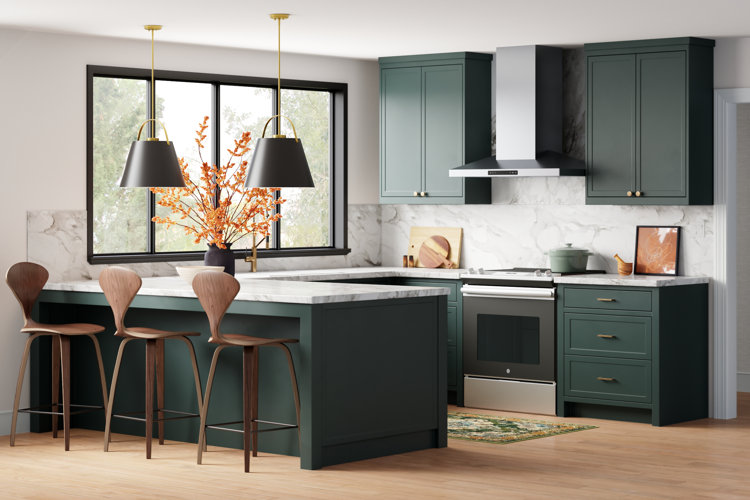Our Guide to Bar Stool Weight Capacity & Durability
Discover bar stools with long-lasting quality.
Whether you're cozying up to the kitchen counter or a high-top bar table, the right bar stools will give you the height and comfort you're looking for. Weight capacity and durability are two qualities to keep in mind while browsing for a new set of bar stools. Keep reading to learn more about bar stool weight and durability to find one that suits your seating needs.
1. Check for Weight Capacity
Bar stool weight capacity is a key factor when choosing bar stools because a higher weight capacity can also mean sturdier construction and added longevity. While most bar stools typically have a weight capacity of 250 lbs., it's important to check the capacity of those you plan on purchasing to ensure they offer the necessary support. Consider the average weight of the people who will be using the stools, and choose a bar stool that comfortably exceeds that weight. When in doubt, opt for a higher capacity to ensure everyone’s safety and comfort.
In addition to bar stool weight capacity, we also recommend considering the durability of the bar stool’s material to ensure its longevity in your home. Here are some common bar stool frame materials to consider:
Metal: If you're looking for a bar stool with a high weight capacity, metal bar stools are a durable option. Try to find bar stools with welded frames rather than frames that are screwed together. This adds extra sturdiness to the stool, which can allow it to last longer.
Wood: Wood is a strong and durable frame material, with hardwoods like oak, maple, and teak offering exceptional stability and long-lasting support. When reinforced with features like corner blocks, wooden bar stools can withstand heavy use while maintaining their structural integrity over time.
Plastic: Plastic is a lightweight and affordable material for bar stools. While it doesn’t offer the same strength as metal or wood frames, high quality acrylic stools can provide decent support and durability to everyday use.
Tip!
Check out our guide Types of Bar Stool Materials for a more in-depth overview of bar stool materials and how to choose the right one for your home.
3. Factor in Design & Weight Distribution
The design of a bar stool can impact its structural integrity and therefore its load-bearing capabilities. Consider these common constructions and how they will impact the strength of your stools:
Four-Legged: Four-legged stools are great for even weight distribution and provide stable seating.
Sled: Sled stools are a highly stable design option. The weight is distributed along the sled base rather than concentrated on individual legs, reducing the risk of tipping.
Pedestal: Pedestal stools rely on a single central support, which can concentrate weight in the middle of the base. To ensure stability, these stools typically feature a wide, weighted base that helps distribute the load evenly.
Tip!
Read our guide Types of Barstools to learn more about the different designs and base types of bar stools so you can confidently choose the right one.

